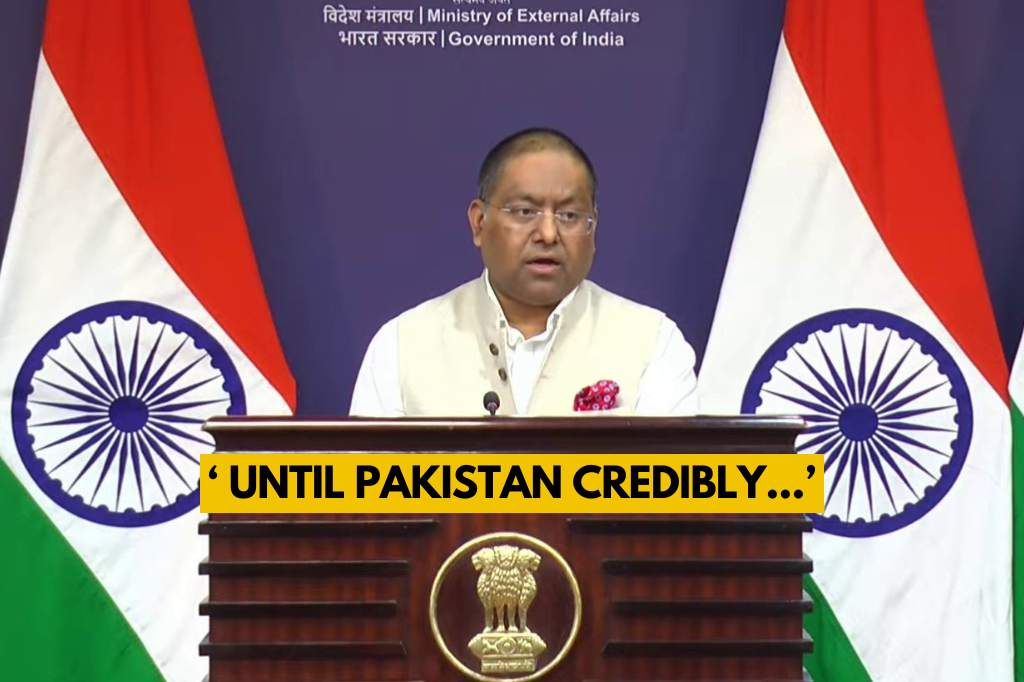India has announced the suspension of the Indus Waters Treaty with Pakistan for the first time since its signing in 1960, citing Islamabad’s continued support for cross-border terrorism. The move follows the deadly April 22 terror attack in Pahalgam that claimed the lives of 26 people, mostly tourists.
Ministry of External Affairs (MEA) spokesperson Randhir Jaiswal, addressing the media on Tuesday, May 13, stated that the treaty will remain in abeyance until Pakistan “credibly and irrevocably abjures” its backing of terrorism. “The Indus Waters Treaty was concluded in the spirit of goodwill and friendship, as outlined in its preamble. Pakistan, however, has long violated these principles through its sustained promotion of cross-border terrorism,” Jaiswal said.
“The other day, you saw that after the Cabinet Committee on Security (CCS) decision, the Indus Water Treaty has been put in abeyance. I would also like to take you back a little. The Indus Water Treaty was concluded in the spirit of goodwill and friendship, as specified in the preamble of the treaty,” said Jaiswal.
He added, “However, Pakistan has held these principles in abeyance by its promotion of cross-border terrorism for several decades now. As per the CCS decision of April 23, India will keep the treaty in abeyance until Pakistan credibly and irrevocably ends its support for cross-border terrorism”.
This development comes shortly after both nations agreed to a ceasefire following Operation Sindoor – a major Indian military response to the Pahalgam attack, which marked a spike in tensions between the two nuclear-armed neighbours.
In his first televised address following Operation Sindoor on May 12, PM Narendra Modi reaffirmed India’s hardened stance, stating, “Water and blood cannot flow together,” underscoring the link between regional peace and the future of the water-sharing agreement.
The decision to suspend the treaty was made by the Cabinet Committee on Security (CCS), India’s top decision-making body on national security matters. The Indus Waters Treaty, brokered by the World Bank, had long been considered a cornerstone of India-Pakistan relations, even amid broader hostilities.







